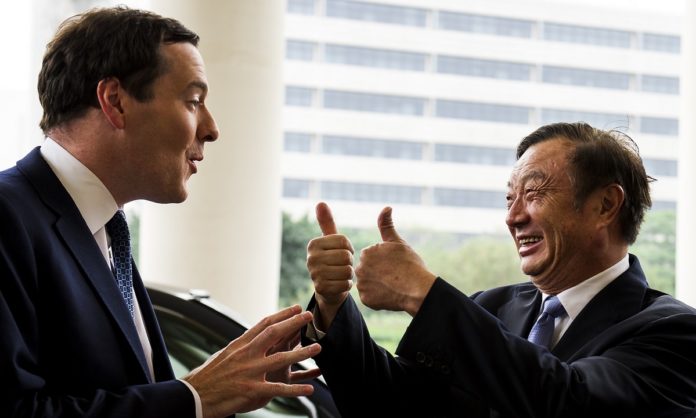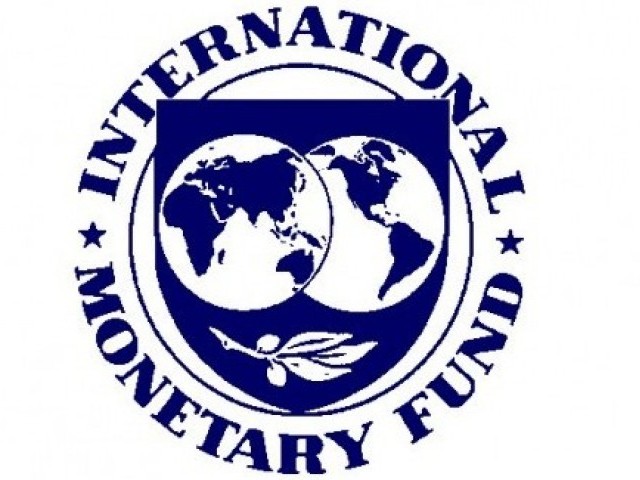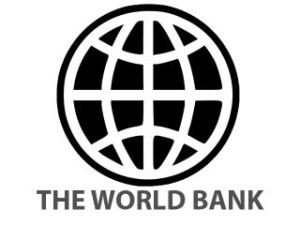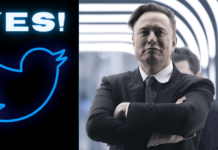
Government officials in the US are outraged over the United Kingdom’s decision to become a founding member of the new Asian Infrastructure Investment Bank. This commitment marks a major change in the global economy. The Asian Infrastructure Investment Bank is setting itself up to be a direct competitor to the World Bank and IMF. These two institutions establish the West as the dominant powers in the world, while the new bank will have policies which are in direct opposition to them.

In theory, both the World Bank and the IMF are benevolent institutions that are designed to help poor countries. The reality, however, is quite different.
The World Bank and the IMF are two sons of the same mother. They were founded at the same time at a conference in Bretton Woods, and are often called the Bretton Woods Agencies or Banks. the IMF’s website states that they are “twin intergovernmental pillars.” These institutions were created after the World War II as a tool to enable financing reconstruction in Western Europe. The World Bank’s formal name is the International Bank for Reconstruction and Development. However, once the Western Powers were taken care of, the bank took on a new mission: loaning money to poor nations. The IMF, on the other hand, is designed to oversee its members’ economic activities and national currency exchanges.
The organizations are controlled by the vote of its members. This seems like a fair deal, right…?
It isn’t.
Votes are literally bought and paid for. A country which pays more, gets a larger vote share.
In the World Bank, for example, the US controls about 16% of the votes even though there are more than 100 member nations. Other wealthy nations play the same game, and give money to the bank in order to control its activities. A handful of nations that have shared economic interests maintain a majority of the votes. The US, Japan, Australia, Switzerland, Belgium, Spain, the Netherlands, Italy, Canada, the United Kingdom, France and Germany control 52.85% of the votes. So even if the more than 90 other countries voted to stop a particular practice, the controlling nations would still have a majority. [1]
The two institutions are used to keep the wealthy nations rich, while suppressing the poorer ones. Does this sound like a conspiracy theory?
Have a gander at this quote:
“The IMF is not, however, primarily a lending institution as is the Bank. It is first and foremost an overseer of its members’ monetary and exchange rate policies and a guardian of the code of conduct. Philosophically committed to the orderly and stable growth of the world economy, the IMF is an enemy of surprise.”
The status quo is maintained through “the orderly and stable growth of the world economy “.
The powerful nations make sure that economic policy decisions are such that it benefits them. In economics, there is always a trade-off. Here, the trade-off is that developing countries tend to suffer and bear the brunt of these policy decisions.
Both IMF and the World Bank give out loans. These loans are backed by the reserves of the larger wealthier nations. These institutions are capable of giving loans to countries which cannot arrange for funds from commercial banks. The dangerous part is what they ask in return. In exchange for these loans, countries are forced to adopt policies that the US and its economic allies…. prefer. These conditions are called Structural Adjustment Programs (SAPs).
In other words, it is as though the World Bank allows the US and its allies to engage in colonialism without even going through the trouble of planting a flag or the dirty( both in terms of the chaos of war, and the tarnishing of a nation’s honorable reputation) act of conducting an occupation. If the US can control a country’s economic policies, there is no need to invade…. One could simply arrange for said country to purchase only US-made goods….. One could arrange for profitable state-owned monopolies to be sold to an American institution…. Or one could arrange for sanctions on certain “rogue” nations…..
The World Health Organization has studied the impacts of these SAP’s on the health of the local population:
“SAPs policies include currency devaluation, managed balance of payments, reduction of government services through public spending cuts/budget deficit cuts, reducing tax on high earners, reducing inflation, wage suppression, privatization, lower tariffs on imports and tighter monetary policy, increased free trade, cuts in social spending, and business deregulation. Governments are also encouraged or forced to reduce their role in the economy by privatizing state-owned industries, including the health sector, and opening up their economies to foreign competition.”
So essentially, these benevolent institutions reduce worker pay, reduce taxes for the rich, reduce social welfare spending, privatizes state owned industries, make imports cheaper, and opens the local economies to fierce foreign competition. One wonders if anyone in the world truly believes that lowering the wages of poor people will solve the problem of poverty in a country. Add to this the fact that social benefits are also cut. The local manufacturing industry is adversely impacted because of cheap imports that flood the economy. State-owned industries are privatized, and the new owners take loans from Western banks for capital, and finally foreign corporations move in to establish factories where they can pay people slave wages. [1]
Globalexchange.org explains how banks harm workers:
“The IMF and World Bank frequently advise countries to attract foreign investors by weakening their labor laws — eliminating collective bargaining laws and suppressing wages, for example. The IMF’s mantra of “labor flexibility” permits corporations to fire at whim and move where wages are cheapest. According to the 1995 UN Trade and Development Report, employers are using this extra “flexibility” in labor laws to shed workers rather than create jobs. In Haiti, the government was told to eliminate a statute in their labor code that mandated increases in the minimum wage when inflation exceeded 10 percent. By the end of 1997, Haiti’s minimum wage was only $2.40 a day.
Workers in the U.S. are also hurt by IMF policies because they have to compete with cheap, exploited labor. The IMF’s mismanagement of the Asian financial crisis plunged South Korea, Indonesia, Thailand and other countries into a deep depression that created some 200 million “newly poor.” The IMF advised countries to “export their way out of the crisis.” Consequently, more than 12,000 American steelworkers were laid off when Asian steel was dumped in the US.”
The World Bank and the IMF frequently end up devastating the countries that they offer to help, although the new Asian Infrastructure Investment Bank may end up very similar to the existing banks. The Chinese might now exploit the countries in much the same manner that the old system had exploited them. The only point of difference would be that now China would be the boss and it would be Chinese companies that move into the nations to plunder them.
This means that the US will suffer, because it now faces competition in destroying and looting other nations.
Sources:
https://www.imf.org/external/pubs/ft/exrp/differ/differ.htm





Might want to include this bit of info.
The money issued by IMF/WB is backed by ‘debt’ or in reality, nothing at all.
The AIIBs money is being backed by gold.
If you have any spare money, buy gold.